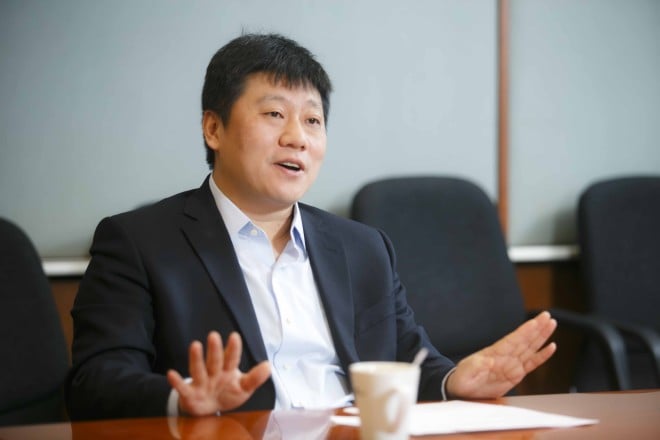
CityU law students take great leap forward
New strategies and partnerships create a broader outlook at leading school
[Sponsored Article]
In emphasising the value of student exchanges and collaboration with partner institutions around the world, CityU’s School of Law has a well-thought-out-strategy – and there is no doubt it is paying off.
The essential aim is to create new opportunities for learning, research and personal development. But in parallel with this, all kinds of practical benefits accrue, among them a greater appreciation of diversity, a fuller understanding of legal systems in other jurisdictions, and better prospects when the time comes to pin down a full-time job.
According to Dr Chen Lei, associate dean for external affairs of CityU’s School of Law, the main idea in any such initiative is to start with clear objectives and build the right framework.
“A priority for us is to give students a wealth of experience, to let them meet, mingle with and work alongside people from different backgrounds and cultures,” he says. “So, when we choose partners, we look very closely at everything, from what they can offer, to what they require our students to do.”

Discussions are likely to cover the list of courses and curriculum content, the type of internships available, and the minimum number of credits students are expected to transfer back to Hong Kong.
“For any exchange programme, there are broad guidelines, but we want to maximise the benefits of the experience for every student,” Chen says. “Therefore, we give advice, ask them to report back on the courses they are taking, and exercise a high level of quality control.”
As a result, it is perhaps no surprise that the latest Law rankings put the school number one in the world in terms of its international outlook. Or that the number of tie-ups with overseas institutions– whether for student exchanges, summer schools, visiting professor lecture series or double/joint degrees – continues to grow.
For many undergraduates, a leading choice is the G-LEAP (Global Legal Education Project) programme, which allows them to spend one month in summer term at Monash University in Melbourne, or University College, Oxford.
However, there are also numerous other tailor-made options at partner law schools in North America, the UK, Asia and mainland China. And with that comes the opportunity not just to broaden the horizons of Hong Kong-based students, but also to welcome more LLB or JD students from overseas, and to arrange short-term exchanges for faculty members.
“For instance, we have recently started an initiative to attract more students from Asean countries to take the LLB with us,” Chen says. “There is a large pool of talent, and we want to train future leaders in the legal field in those jurisdictions. Law schools in Hong Kong haven’t yet tapped into that potential.”
Clearly, schemes like this play a big part in promoting diversity, scholarship and cross-pollination. But, as Chen acknowledges, there are also down-to-earth practicalities behind the move to encourage time overseas, bearing in mind the vast majority of law students plan to go into the legal profession and are hoping for offers from the top firms.
“Simply put, it is market-driven,” he says. “When we talk to partners in charge of recruitment at Hong Kong law firms, they are generally looking for LLB or JD graduates with a strong transcript, possessing exchange study or internship experiences in both common law jurisdictions and, ideally mainland China. That is seen as a real advantage when it comes to dealing with business for major clients.”
To that end, the school provides quite generous financial support for international stays – and it has seen a marked increase in interest and uptake over the last three years. Previously, local students tended to hold back, preferring to remain in their comfort zone, accumulate credits in Hong Kong, and just target a place on the postgraduate PCLL programme.
Now, though, well over 80 per cent of undergraduate students opt to spend some time overseas, and doing an overseas study has almost come to be seen as a basic course requirement.
“It helps students to appreciate different cultures, and develops the kind of graduates law firms want to hire,” Chen says.

In this respect, Dr Ding Chunyan, associate professor and assistant dean at CityU’s School of Law, notes that it makes sense to enhance international cooperation at various levels. Doing so not only helps to attract students and researchers, it is also a way to broaden the curriculum by covering additional specialist topics.
For instance, the school has introduced a series of shorter one-credit courses taught by internationally renowned professors. These usually involve 13 contact hours in four sessions for one week, as well as assignments and exams. So far, the subjects have included intellectual property (IP), capital markets and consumer protection.
“It is a great way to diversify the curriculum and let students hear from scholars in different fields,” Ding says.
She adds that particular attention is also given to the needs and standards expected of incoming exchange students. There is an orientation programme, a specified number of credits calculated on the basis of reciprocity, and they are eligible for internship opportunities, mooting competitions, and editorial positions with the school’s law review and journal.
“We survey all exchange students and ask for suggestions to improve the programmes.” Ding says. “We emphasise, though, that learning practicalities is part of the process, and we want to see changes at individual level.”
